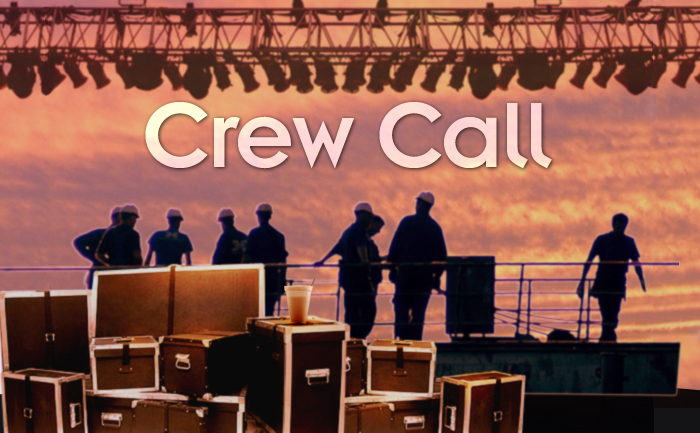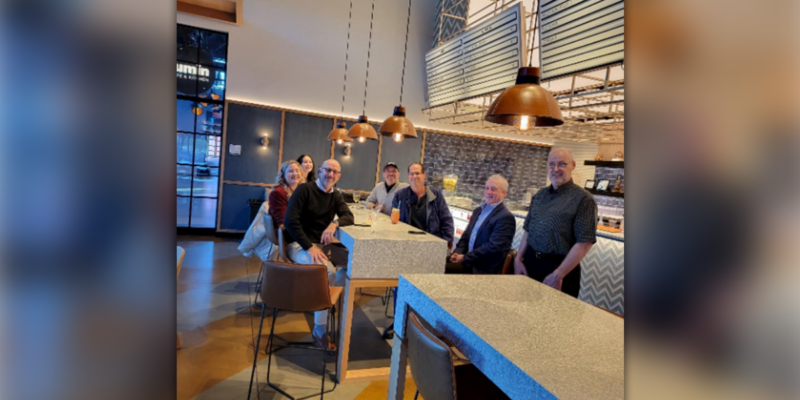How We Roll(odex)
 Recently, a rep from a firm that we work with fairly frequently asked me to name the most important tool in my toolkit. I believe he was expecting me to name the Leatherman I constantly carry on my belt, since (among other things) he reps a line of multi-tools that are supposedly more sophisticated than the Leatherman.
Recently, a rep from a firm that we work with fairly frequently asked me to name the most important tool in my toolkit. I believe he was expecting me to name the Leatherman I constantly carry on my belt, since (among other things) he reps a line of multi-tools that are supposedly more sophisticated than the Leatherman.
However, I really messed up his sales pitch when I told him that the most important tool I possessed was my Rolodex. Unfortunately, this young man is of an age where he has never seen a rotary dial phone, let alone a Rolodex. So for those of you too young to have been in the slide rule generation, a Rolodex was a card file with removable cards that spun on a central axis (hence “roll”) and whose cards were removable so that you could take them with you if you needed to.
Now, to be fair, I have not had an actual physical Rolodex myself in many, many years. But the card file that I carry on my notebook computer and my iPhone did indeed start out years ago on actual paper cards, which I later transferred to Sharp organizers, then Palm pilots and finally to my MacBook Pro and my iPhone.
My current card file contains just over 2,700 cards.
This is because of lessons learned from my favorite business textbook, “the Godfather.”
In fact, years ago I wrote an article for this column about the great business lessons that you can learn from the Godfather. But the important one to remember here is to never let the phone number of someone who can do you a favor, or somebody who owes you a favor, to get away. In fact, not only do I try to capture all of these numbers, I try to regularly go through them, and send them the occasional email or birthday greeting in order to keep them fresh, And to keep them remembering me.
Throughout my career this has been the most important function that I do on a daily basis.
Luckily, I have spent a fairly long career in several different types of companies, from a local AV company, to a national company with offices in 14 cities and hundreds of hotels, to a very large touring staging company. In each of them, there were different kinds of contacts that I tried to maintain.
Local AV:
If you work in a company that is principally located in one or two cities, the Rolodex game is one of depth. In other words, you want to have contact information for as many people as you can among your local customers, your local suppliers and your local venues. It is all well and good to have the number for the sales manager of the convention center; however, at 2 a.m., it’s a great deal more useful to have the cell phone number of the junior security guard who has the keys to the loading dock. It is good to have the phone number of your principal client, but even better to have the cell phone number of the PA or secretary who probably knows more about the schedule for events then your principal client does. Hotel desk clerks, dispatchers at taxi companies, banquet managers, the list goes on. These are all people who can make your job easier if you know them, and having their number can make you look like that magician who can always get things done.
National AV companies:
Here you have both the requirements of a local AV company, and the necessity of having the personnel of your company in other cities in your card file. This can enable you to be a hero to your management in helping business move from one of your offices to the next without your competition getting into the loop. Paying attention to the client while you have them in your locality — listening especially for worlds they are doing business in — can get you noticed by both the client and by your company. Within the company, you begin to acquire the reputation of somebody who knows everybody. In a company with a natural national hierarchy, this can make all the difference.
Touring AV companies:
This is probably where my cardfile grew the largest. I spent several years working national trade shows and large events with an excellent staging company, where many of the senior technicians’ Rolodex files were even larger than mine. Delivery drivers, taxi drivers, 24-hour restaurants that deliver, hardware stores with their hours and locations, even that loading dock worker with a garage band who loaned you a microphone once. When you are doing business in a strange city all the time, having those numbers at your fingertips rather than having to go hunting for them can save you a lot of late nights. It takes you only a few minutes on your current road trip to curate these numbers, and it may save you hours in the future.
The other thing about taking down these phone numbers (and I would encourage you to also take notes about each person, as your card file is going to grow) is that people are always interested in people who are interested in them, and the very act of chatting with them briefly and getting their number will cause them to remember you in a friendly way the next time you need something. And, sooner or later, we all need a favor.





